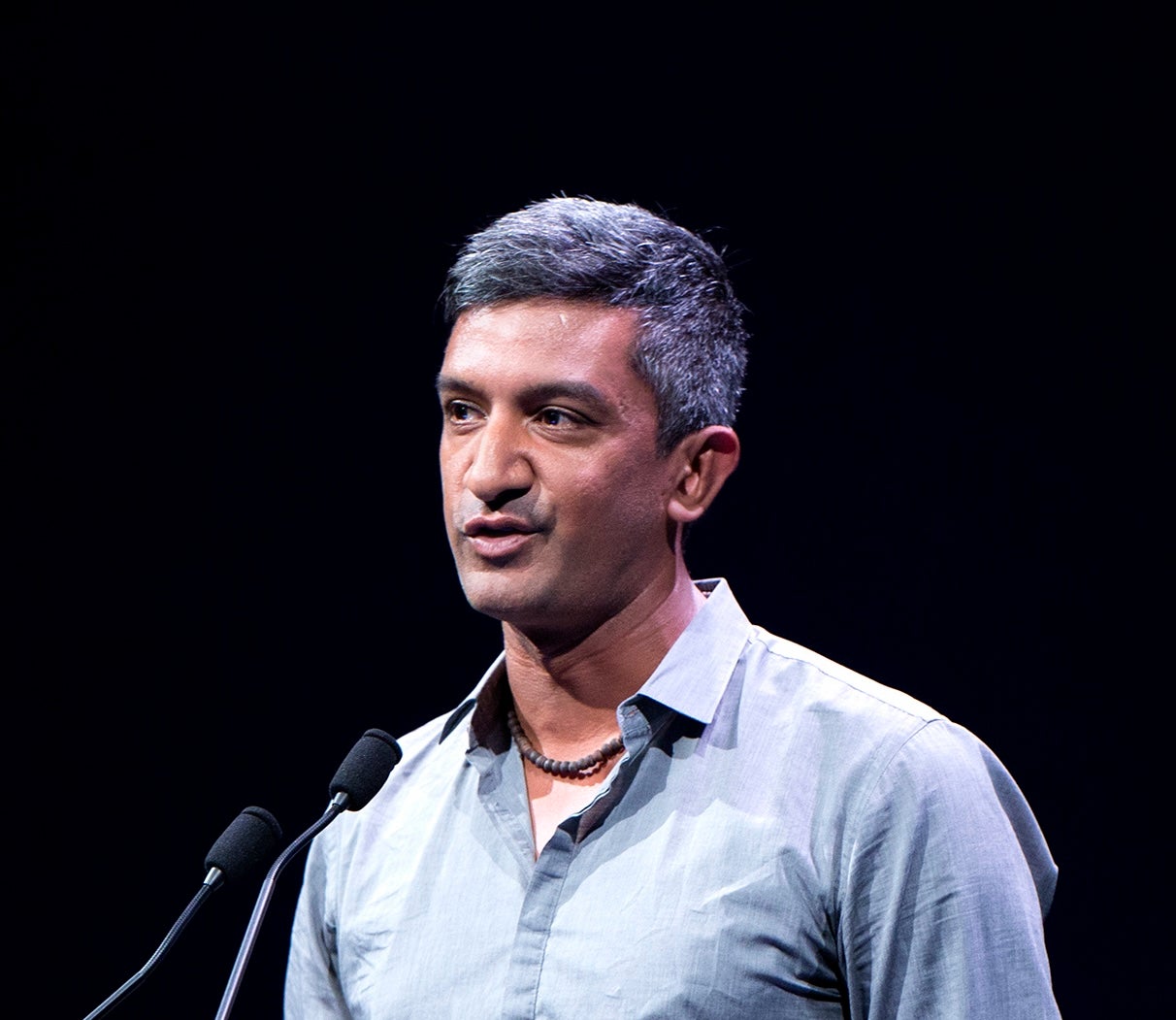Ramesh Srinivasan
Professor
Ramesh Srinivasan is an American engineer, social scientist, academic, author, and host of the Utopias podcast. He is Professor of Information Studies at the University of California, Los Angeles, with a joint appointment in Design/Media Arts. Srinivasan is the founder and Director of the Digital Cultures Lab at UCLA since 2015 and serves as Assistant Director of UCLA’s DataX initiative.
Srinivasan’s work focuses on how technologies are impacting political, social, psychological, economic, and ecological realities around the planet. His work discusses the potential of technology to support all people and environmental issues, rather than play into a zero sum game that creates isolation, division, and disconnection. Srinivasan previously served as a national surrogate for Senator Bernie Sanders 2020 presidential campaign, and as an Innovation policy committee member for former President Biden. As of 2025, he also continues to informally advise Rep. Ro Khanna, who has cited his work in his latest book. Srinivasan has been working with multiple state legislators on AI rights, regulations, including within the state of California.
He has written three books. His most recent book Beyond the Valley: How Innovators around the World are Overcoming Inequality and Creating the Technologies of Tomorrow (2019), was listed among Forbes’ top technology books of 2019, and his work has been referenced by New York Times columnist Thomas Friedman regarding digital rights.
Srinivasan is a member of the board of directors at Awana Digital, a nonprofit that works and collaborates with land protectors in the Amazon. He is an adviser to New_Public, One Project, and the Huntington Library.
Departments
Programs
Other Affiliations
Titles and Positions
- Professor of Information Studies
- Director, UC Center For Global Digital Cultures
Education
- Doctorate, Design Studies, Harvard University, 2005
- M.S, Media Arts and Sciences (Media Laboratory), Massachusetts Institute of Technology, 2002
- B.S., Industrial Engineering with Honors, Stanford University, 1998
Select Publications
- 2017. Srinivasan, R., Whose Global Village? Rethinking How Technology Shapes Our World, NYU Press, 2017.
- 2017. Srinivasan, R. and Fish, A. After the Internet, Polity Press, forthcoming.
- 2013. Srinivasan, R. “Re-thinking the Cultural Codes of New Media: The Question Concerning Ontology”, New Media and Society 15(2): 203-223.
- 2013: Srinivasan, R. “Bridges Between Cultural and Digital Worlds in Revolutionary Egypt”, The Information Society 29(1): 49-60.
- 2012: Srinivasan, R. “Re-thinking Digital Cultures and Divides: The Case for Reflective Media”, The Information Society 28(1)
- 2012: Juliano, L. and Srinivasan, R. “Tagging It: Considering how Ontologies limit the Reading of Identity”, International Journal of Cultural Studies: 615-627.
- 2011: Fish, A. and Srinivasan, R. “Digital Labor is the New Killer App”, New Media and Society 14(1): 137-52.
